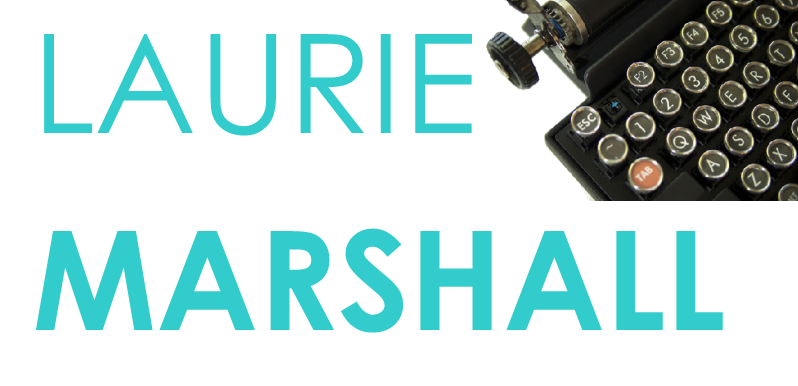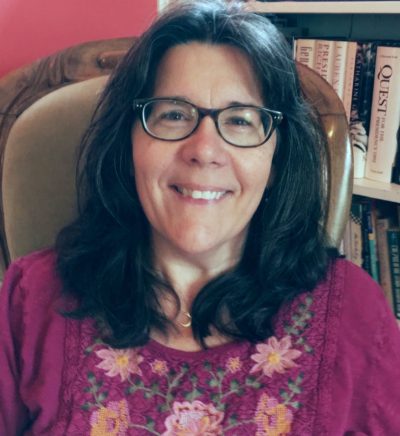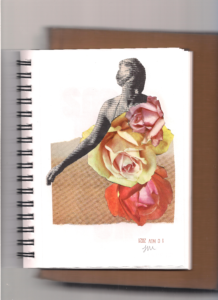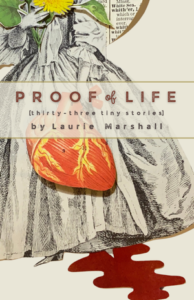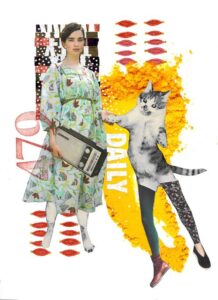The more stories by women over forty I read, the more convinced I am that there is treasure out here in the Forest of the Crones that trendy, and even traditional, publishing houses have no idea they’re missing. You, as a reader, probably know it too.
With my modest little posts here, I hope to help dispel the idea that authors who don’t get off the ground in their twenties or thirties are too late to the party to get a seat at the table. This is a huge-ass table and it’s big enough for all of us.
*puts away soapbox*
Today’s author is the brilliant Ellen Birkett Morris. Her website has a lovely bio, so I won’t try to recreate it. “[Ellen] is an award-winning writer, teacher and editor based in Louisville, Kentucky. Her fiction has appeared in Shenandoah, The Antioch Review, The Notre Dame Review, and The South Carolina Review, among other journals. Her commentaries have been heard on public radio stations across the United States. She is a winner of the Bevel Summers Prize for Short Fiction and the recipient of a 2013 Al Smith Fellowship from the Kentucky Arts Council. Morris holds an MFA from Queens University-Charlotte.”
Listen, I’m not working with lightweights here, okay? I was completely delighted by the stories Ellen sent me to read and have added her debut collection, Lost Girls, to my “to-read” list. And, after reading through her answers to my questions, I’m eager for her novels to be published and I’m confident we should be BFFs so we can mourn the loss of movie theaters together. Now, let’s get to the Q&A!
Q&A with Ellen Birkett Morris
When did you know you were a writer?
I was in my mid-thirties and realized that I’d built my career so that I would be paid to write – as a reporter, a freelancer, a consultant. I longed to do creative writing seriously. I’d written stories as a kid, and poetry in college, but I realized that if I didn’t pursue writing in earnest then I wouldn’t do it. I was afraid of failure, but leapt in anyway.
If writing is a second career, what were you doing before you started writing?
I indexed research articles for a database company, taught interpersonal communication and public speaking, did public relations for a book store, worked for a business paper and as a freelance writer. Now, I am a media relations consultant for a foundation that supports feminist artists who work for social change and I conduct author interviews and reviews in addition to writing.
You received an MFA from Queens University-Charlotte, a low-residency program, a decade after your MA, and almost two decades after your BA. What made you decide to pursue the MFA, and how has it impacted your career?
I wanted to be a part of a community of writers and learn more about craft. I picked Queens because the faculty was outstanding and came from different parts of the country. I learned a lot and built a broad network of peers and mentors. I still work with a few of my fellow students in an online critique group. I’ve also had great experiences with summer workshops including the Antioch Writers Workshop and Kenyon Review Workshop. They felt like summer camp for writers with lots of camaraderie and an immersion in good writing.
I drew from my Queens connections when I wanted to hire someone to take a closer look at my work, when I needed references for grants and residencies and when I need blurbs to promote the book. It was helpful to have people to draw on who knew my work and what I was trying to achieve.
So, you’ve been working as a freelance writer for quite a while. Do you find it difficult to maintain a drive to create and submit your fiction while also meeting your deadlines for clients? What are your tips for writers struggling to make that work? (And by “writers”, I definitely mean “me”.)
I like going back and forth between the different types of work. I am motivated to write, revise and submit by the idea that I am the only person who will champion my work. I’ve seen that submitting is a crucial part of the process of getting published, so I’m not afraid to put my work out there consistently. I am looking for the right editor on the right day with the right piece. I am determined to find the right home for my work.
What would you say to writers over 40 who are trying to make headway as a writer? Any advice? Anything they should NOT do? Or maybe just reassurance that they’re not crazy?
I love this question. We need to tell ourselves that it takes however long it takes for us to refine the work or find our theme. We need to focus on our own work and not feel pressure to compare ourselves to someone else. You want to be happy with what is out there. Quality, not publication, is the goal. Allow yourself to feel included, as long as you are writing you are part of the community. I say this having spent years grappling with these issues myself.
Who are some authors who inspire and challenge you, both as a reader and a writer?
I love the work of Elizabeth Strout, who brings such empathy and affection to even the prickliest characters. She challenges me to go deep into character and to embrace what I find there. I was really awed by the magic that Anthony Doerr pulled off in All the Light We Cannot See. The story took on things both big and small so gracefully.
They tell us to “write what we know”. What do you know?
I know desire, love, loneliness, heartbreak, frailty, strength, compassion, brokenness, unity, separateness, fear, safety, anger, melancholy, the full catastrophe and beauty of life. These are the things I want to come through in my stories. The stories are made up, the emotions that anchor them are not.
What’s your “writing process”?
When writing poem I’m often inspired by other poems wondering what I could do with that theme or if I borrowed that form. Stories come from ideas, like “Religion,” which started with the way social groups can be cultish but found its wings with the idea that loneliness can drive us to do things we never dreamed we’d do. Sometimes character is at the forefront, like the young girl in “Like I Don’t Miss Being a Ballerina,” who has so much love to give. I work on multiple projects and work on poems or flash fiction when I feel “stuck.”
You have also written a poetry chapbook – Surrender. Was the process similar to creating a short story collection? Do you dabble in any other genres? Perhaps a novel or screenplay you’re working on?
The process was similar in that I created each poem as a stand-alone piece and then realized that they were thematically linked to an idea. Surrender deals with aging, loss, and letting go.
I do work across the genres, writing essays, short plays and novels as well as fiction and poetry. One novel is about how you deal with a life that isn’t the life you thought it would be. The other deals with discovery and embracing the mystery of being.
Do you have a favorite story in the collection? Were any harder to write than others? Or easier?
I love the story “Religion” because it is both sad and funny. I think it exploits the dramatic potential of the story in interesting ways and the ending really fits. “Inheritance” was hard to write because I really didn’t want to go there. “Swimming,” which alternates between a man and a woman who barely know each other came easily and was full of surprises.
Tell me about your writing community. Do you have a group you spend time with (book club, writing group, etc…) or are you pretty solitary?
I have a fantastic book group of women who read what they want and we share recommendations. I have three writing groups, one with writers from Queens and two others with women from my community. These groups are really important to me as a way to stay connected and they have also been very supportive of my work.
Do you have any new projects on your desk?
I’m putting the final touches on a novel about the mother of a son who has past life memories and the soldier whose memories the child had. I’m revising another novel about a female astronomer who works in Hawaii.
What’s your favorite way to “cleanse your palate” when you need to step away from the page for a bit?
I love going to the movies. I miss sitting in the dark with strangers and having a collective experience, being alone together.
Coffee or tea? What kind of milk?
Tea with two lumps of brown sugar and Lactaid milk.
You can learn more about Ellen’s work, upcoming speaking and teaching engagements, and read more interviews on her website. Follow her on Instagram for further updates and photos of Lila.


